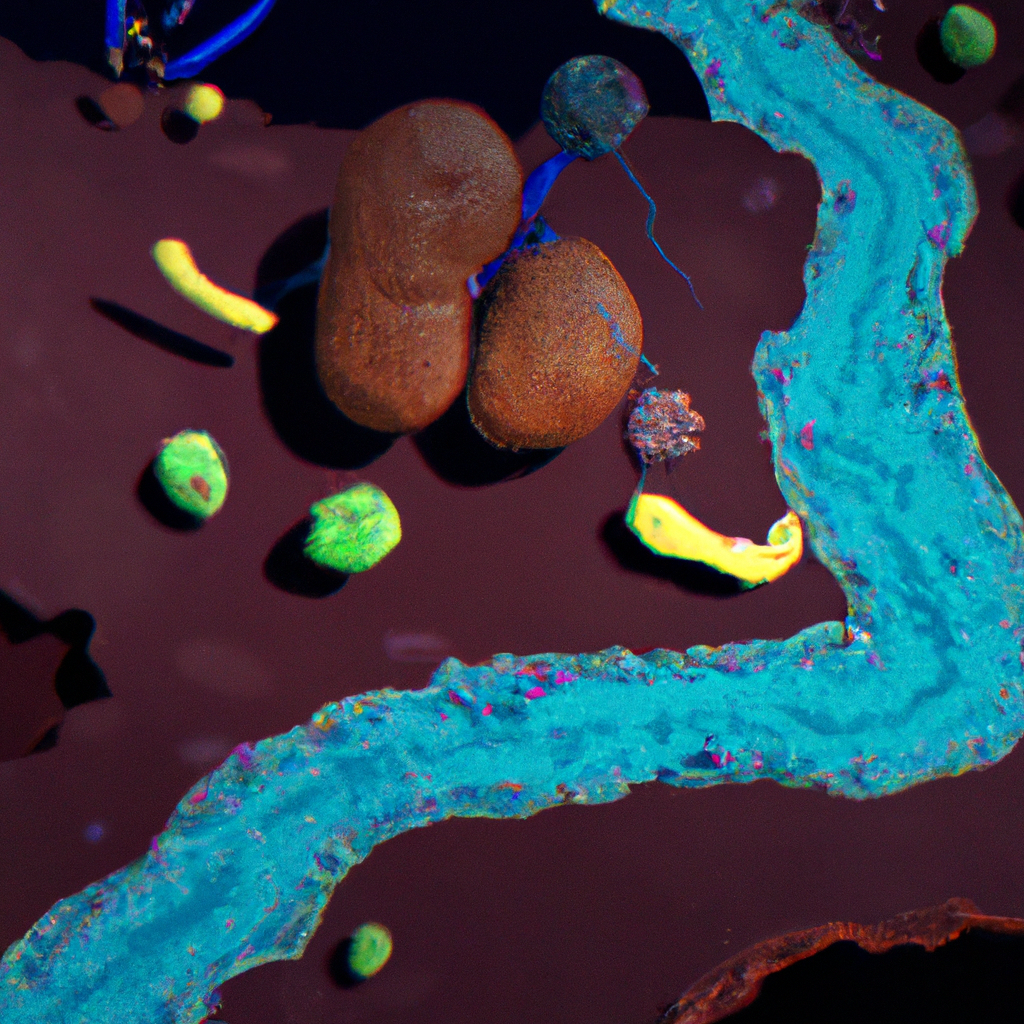-
Reading Roadmap
- Interactions Between Endocrine and Exocrine Cells in the Pancreas
- Key Takeaways
- Introduction: The Pancreas and Its Dual Role
- The Interplay Between Endocrine and Exocrine Cells
- Disruptions in Cell Interactions and Disease
- Future Research and Therapeutic Implications
- FAQ Section
- What are the main functions of the pancreas?
- How do endocrine and exocrine cells interact in the pancreas?
- What diseases can result from disruptions in these cell interactions?
- How can understanding these cell interactions help in disease treatment?
- What is the future of research in this area?
- Conclusion: The Vital Interplay of Pancreatic Cells
- Key Takeaways Revisited
Interactions Between Endocrine and Exocrine Cells in the Pancreas

[youtubomatic_search]
Key Takeaways
- The pancreas is a vital organ that houses both endocrine and exocrine cells, each with distinct functions.
- Endocrine cells are responsible for hormone production, while exocrine cells produce digestive enzymes.
- Interactions between these two cell types are crucial for maintaining homeostasis and metabolic balance.
- Disruptions in these interactions can lead to diseases such as diabetes and pancreatitis.
- Research is ongoing to understand these interactions better and develop effective treatments for related diseases.
Introduction: The Pancreas and Its Dual Role
The pancreas, a vital organ in the human body, plays a dual role in our health and well-being. It houses two types of cells – endocrine and exocrine – each with distinct functions. The endocrine cells, located in the islets of Langerhans, produce hormones like insulin and glucagon that regulate blood sugar levels. On the other hand, the exocrine cells produce digestive enzymes that help break down food in the small intestine. The interactions between these two cell types are crucial for maintaining homeostasis and metabolic balance in the body.
The Interplay Between Endocrine and Exocrine Cells
Endocrine and exocrine cells in the pancreas work in tandem to ensure the body’s metabolic functions run smoothly. For instance, the hormones produced by endocrine cells regulate the secretion of digestive enzymes by exocrine cells. This interplay is crucial for maintaining the body’s glucose levels and ensuring proper digestion.
Moreover, research has shown that endocrine and exocrine cells can influence each other’s functions. For example, insulin, a hormone produced by endocrine cells, can stimulate the production of digestive enzymes by exocrine cells. Conversely, certain factors produced by exocrine cells can influence the function and survival of endocrine cells.
Disruptions in Cell Interactions and Disease
Disruptions in the interactions between endocrine and exocrine cells can lead to diseases. For instance, insufficient insulin production by endocrine cells can result in diabetes, a condition characterized by high blood sugar levels. On the other hand, overproduction of digestive enzymes by exocrine cells can lead to pancreatitis, an inflammation of the pancreas.
Research has also shown that diseases affecting one type of cell can impact the other. For example, chronic pancreatitis, primarily an exocrine cell disorder, can lead to diabetes due to the damage it causes to endocrine cells. Similarly, diabetes can affect the function of exocrine cells, leading to exocrine pancreatic insufficiency, a condition characterized by the inability to digest food properly due to a lack of digestive enzymes.
Future Research and Therapeutic Implications
Understanding the interactions between endocrine and exocrine cells in the pancreas is crucial for developing effective treatments for related diseases. For instance, research is ongoing to develop therapies that can restore the function of endocrine cells in diabetes or protect them from damage in pancreatitis.
Moreover, the discovery of the influence of exocrine cells on endocrine cell function opens up new avenues for therapeutic interventions. For example, therapies that target exocrine cell factors could potentially improve endocrine cell function and survival, offering a novel approach to treating diabetes.
FAQ Section
What are the main functions of the pancreas?
The pancreas has two main functions: producing hormones that regulate blood sugar levels (endocrine function) and producing digestive enzymes that help break down food (exocrine function).
How do endocrine and exocrine cells interact in the pancreas?
Endocrine and exocrine cells in the pancreas interact to maintain homeostasis and metabolic balance in the body. For instance, hormones produced by endocrine cells regulate the secretion of digestive enzymes by exocrine cells.
What diseases can result from disruptions in these cell interactions?
Disruptions in the interactions between endocrine and exocrine cells can lead to diseases such as diabetes and pancreatitis.
How can understanding these cell interactions help in disease treatment?
Understanding these cell interactions can help develop effective treatments for related diseases. For instance, therapies that can restore the function of endocrine cells in diabetes or protect them from damage in pancreatitis are being researched.
What is the future of research in this area?
The future of research in this area lies in further understanding these cell interactions and developing novel therapeutic interventions that target these interactions.
Conclusion: The Vital Interplay of Pancreatic Cells
The pancreas, with its dual role, is a vital organ in the human body. The interactions between its endocrine and exocrine cells are crucial for maintaining homeostasis and metabolic balance. Disruptions in these interactions can lead to diseases such as diabetes and pancreatitis. Understanding these interactions better can help develop effective treatments for these diseases. As research in this area continues, we can look forward to novel therapeutic interventions that target these cell interactions.
Key Takeaways Revisited
- The pancreas houses both endocrine and exocrine cells, each with distinct functions.
- Interactions between these two cell types are crucial for maintaining homeostasis and metabolic balance.
- Disruptions in these interactions can lead to diseases such as diabetes and pancreatitis.
- Understanding these interactions better can help develop effective treatments for these diseases.
- Future research in this area holds promise for novel therapeutic interventions that target these cell interactions.
[youtubomatic_search]







